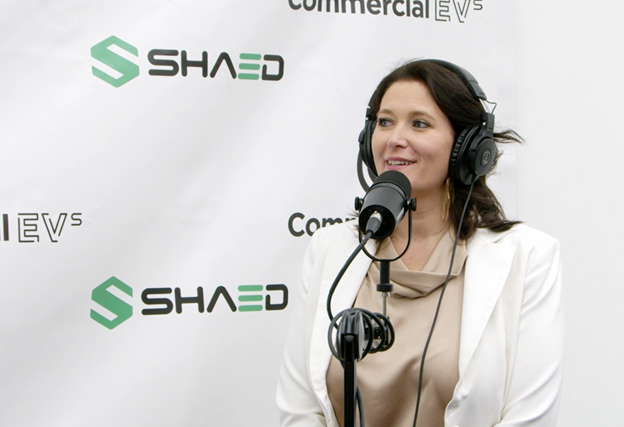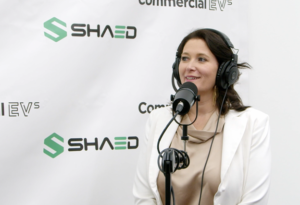At ACT Expo 2024, an enlightening conversation provided valuable insights into the importance of selecting strategic infrastructure partners who understand commercial deployment when electrifying fleets. Hosted by SHAED VP of Utilities and Infrastructure, John Lanham, the discussion featured industry leader Amy Dobrikova from Rexel Energy. Here’s an in-depth look into the key topics that were discussed during this session.
👇WATCH BELOW 👇
Partnership and Ecosystem Approach
John Lanham started the conversation by exploring what Rexel Energy does. And the pivotal role they play in the charging ecosystem. Rexel Energy’s strategy emphasizes a comprehensive ecosystem approach to fleet electrification. Covering everything from vehicle procurement to infrastructure deployment and ensuring interoperability. Amy highlighted the importance of being charger agnostic, stating, “It’s not a one size fits all.” She emphasized the need to understand the customer, their expectations, and what they are looking to achieve.
Understanding customer needs is crucial for Rexel. They tailor their solutions based on each client’s unique requirements. Offering multiple product types and ensuring that the chosen infrastructure is compatible with the client’s fleet vehicles. “It’s so important to have a true total ecosystem solution for our customers. It is not just the vehicles. It’s not just the infrastructure, it’s all of us working together” Amy explained. Electrifying a fleet presents numerous challenges, making strong partnerships essential. Without them, the electrification process becomes nearly impossible.
Infrastructure and EV Deployment
When it comes to electrifying fleets, Amy emphasized the importance of starting with the right infrastructure. “If they’re thinking about going electric, they need to start with infrastructure.” She stressed the need to initiate conversations with utilities to deploy infrastructure effectively. This involves understanding vehicle types, duty cycles, and acceptance rates to make informed decisions. Deploying EV infrastructure requires a thorough process. From assessing the current fleet to planning the deployment of chargers that meet the fleet’s needs. “You need to understand the acceptance rate of the vehicles and the duty cycles to help make the right infrastructure choice,” Amy noted.
Grants and Incentives
One of the standout features of Rexel’s offering is their grants and incentives tool. This tool is designed to help clients identify all available federal, state, and local rebates. Which makes it easier to prioritize infrastructure deployment. Amy shared a success story to illustrate the tool’s impact. “We helped a client capitalize on available funds. Enabling them to electrify over 50 locations for a fraction of the expected cost.”
Tools such as the one provided by Rexel Energy provide detailed information on various rebate programs. This helps clients sort and prioritize grants and incentives based on their specific needs. Whatever those needs may be whether it’s workplace charging, fleet charging, or the type of charger required. The guidance provided through these tools help clients apply to different programs and choose the right chargers. Accordingly this ensures they capitalize on available incentives and deploy the necessary infrastructure effectively.
Conclusion
In conclusion, Rexel Energy Solutions, under the leadership of experts like Amy Dobrikova, is paving the way for fleet electrification through a comprehensive ecosystem approach. Their innovative tools and client-focused strategies are helping fleets transition smoothly to electric vehicles, ensuring they capitalize on available incentives and deploy the necessary infrastructure effectively.
_ _
Written by Taylor Steele
October 2024




